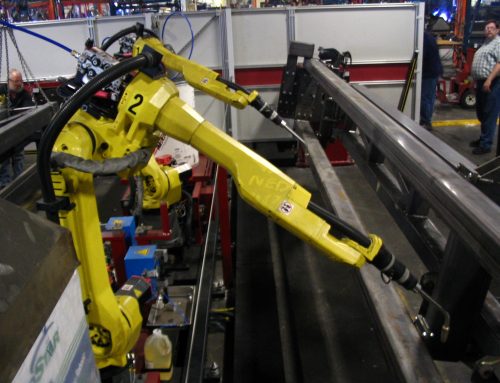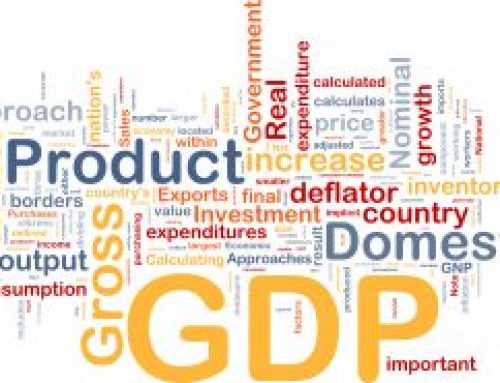 With the US Presidential election finally over, there is yet another looming uncertainty making many in the business community nervous: the fiscal cliff.
With the US Presidential election finally over, there is yet another looming uncertainty making many in the business community nervous: the fiscal cliff.
The fiscal cliff is a bundle of tax increases and spending cuts scheduled to take place on January 1, 2013, unless Congress reaches a compromise to avert these policy changes. Many in the financial services community warn that the fiscal cliff may derail the economy’s tepid recovery, possibly putting the US economy back into a recession while also cutting the global economy’s growth by half in 2013.
So, how did our lawmakers get us into this situation? The New Yorker’s James Surowiecki explains:
“Last summer, during the absurd imbroglio over the debt ceiling, House Republicans and the White House agreed to get serious about reducing the deficit. But, since they couldn’t agree on how to do so, they struck a deal. [If they couldn’t come to agreement on how to tackle the deficit], nearly a trillion dollars of automatic spending cuts, known technically as “sequestration,” would go into effect, on January 2nd. None of these cuts—half of which would come from the defense budget and half from domestic spending—would be things that most congressmen wanted. But that was precisely the point: the cuts were supposed to be so intolerable so that Congress would make a deal in order to avoid them.”
The Impact on Dividends and Equities
According to a recent Bank of America Merrill Lynch Fund Manager Survey, “nearly three-quarters of global investors believe that the fiscal cliff is not substantially priced into global equities and macroeconomic data. The fiscal cliff is identified as the number one tail risk by 42% of respondents.”
Another major concern amongst those in the asset management industry is how the fiscal cliff will impact taxes on dividends. If Congress fails to act before the end of the year, dividends received after January 1st will be taxed as ordinary income, instead of the current maximum 15% tax, meaning that dividend taxes would nearly triple for some taxpayers. Ordinary income tax rates are scheduled to return to pre-2003 levels, with a maximum of 39.6% — plus a new 3.8% tax to help cover the Affordable Care Act, for a total of 43.4%.
Lessening Confidence in the US Economy
In an interview with American Public Media’s Marketplace, Goldman Sachs CEO Lloyd Blankfein expressed concern that the fiscal cliff may threaten confidence in US economy. He said:
“At the end of the day, the United States is the biggest economy in the world and the dollar is the reserve currency in the world. I think it behooves us to act in a much more responsible way. Without having a bias on which way the compromise should be generated, I believe our legislative leaders should affect a compromise. And in the long-run, the failure to do so will lead to less confidence in the US which will have vast implications for a country that again is the strongest economy, whose currency is the reserve currency of the world. And then it would be manifest in terms of potentially rating downgrades but also in the attitudes that people have for doing business and relying on the integrity of the United States.”
On October 18th, 15 CEOs from some of the largest US and global financial services companies, including Bank of America, JPMorgan Chase, and Goldman Sachs, sent a letter to the White House and Congress warning of the grave consequences facing the US economy if nothing is done to address the fiscal cliff. The signatories did not bring specific policy suggestions to the table, only asking Congress to “negotiate a bi-partisan agreement as quickly as possible.”
A First Step
According to the LA Times, on the day after the election, House Speaker John Boehner “made the first offer to avert the year-end fiscal cliff telling President Obama that the Republican majority in the House was willing to work with the White House even as he stood by the core no-new-taxes pledge that has prevented a deal.”
Boehner said, “Let’s challenge ourselves to find the common ground that has eluded us. Let’s rise above the dysfunction, and do the right thing together for our country in a bipartisan way.”
With The Congressional Budget Office warning that the fiscal cliff may put the US economy back into recession, with the economy contracting by nearly 3% next year, eliminating two million jobs, and raising the unemployment rate to more than 9% and a Fitch Ratings report warning that the “U.S. fiscal cliff represents the single biggest near-term threat to a global economic recovery” let’s hope that our government can get beyond partisan politics and come to some sort of agreement.
As Surowiecki writes, “The fact that Congress was foolish enough to create the fiscal cliff doesn’t mean it also has to be foolish enough to drive us off it.”





